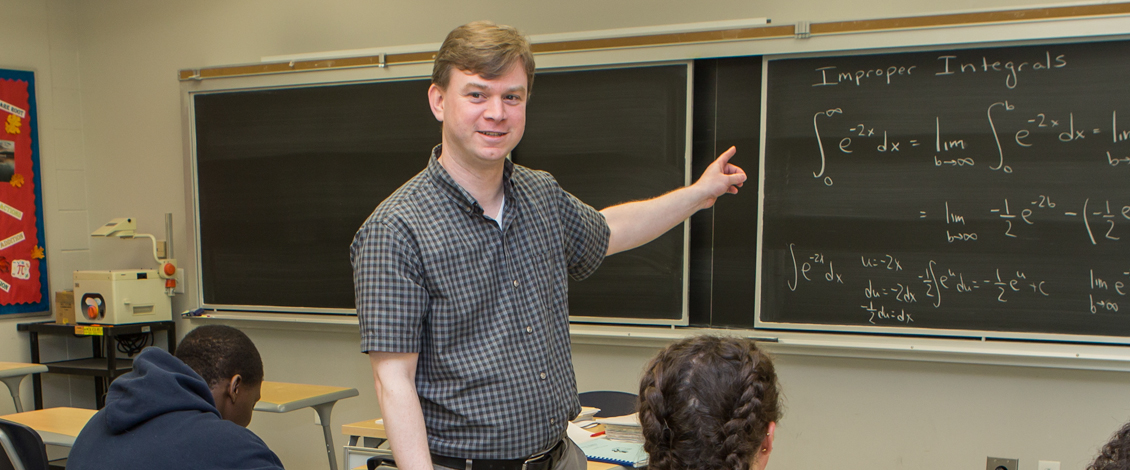
Mathematics Minors
Students in other majors who wish to deepen their knowledge of mathematics, statistics, or actuarial science can earn a minors offered by the mathematics departments.
For students in majors such as chemistry, computer science, and physics, the minors may require only one or two additional mathematics courses beyond the mathematics courses already required for their major.
Contact the Mathematics Department to register for any of the minors.
Actuarial Science
Actuarial Science minors prepare for the first two actuarial exams, Probability exam (Exam P) and Financial Mathematics exam (Exam FM). Whether the student elects to take one or both exams before graduation or wait to take them later, the student will have the requisite knowledge to pass the exam.
Actuarial Science is a common career choice for students with excellent mathematical ability.
Applied Statistics
The Applied Statistics minor emphasizes practical applications of statistics. Students who complete this program will be educated consumers of statistical information and capable of many types of data analysis.
- Algebra-based statistics -- no calculus required.
- All industries use data and statistics. Learn how to use statistical results to make decisions and convey information.
Mathematical Statistics
The Mathematical Statistics minor provides concentrated study of statistics. Students who complete this program understand data analysis, including its theoretical underpinnings.
- A calculus-based program produces students who understand statistical concepts and applications.
- Learn to develop statistical models and studies. Apply statistics in a variety of areas.
- Prepare for careers in consulting and data analysis firms.
Mathematics
The minor in mathematics consists of the introductory courses in the mathematics major. Completing the program will develop the student’s problems-solving skills and prepare the student for technical positions or graduate study in STEM disciplines.
- Learn the mathematics that forms the foundation for math and science.
- Explore some applications of the math concepts.
Contact Us
Contact Information
- Campus Address
- Science & Technology 118
- Phone:
- (570) 422-3447
- Fax:
- (570) 422-3899 (Fax)
- Title of Department Leader
- Interim Department Chair
- Name
- N. Paul Shembari
- E:
- schembari@esu.edu
- Phone:
- (570) 422-3661



